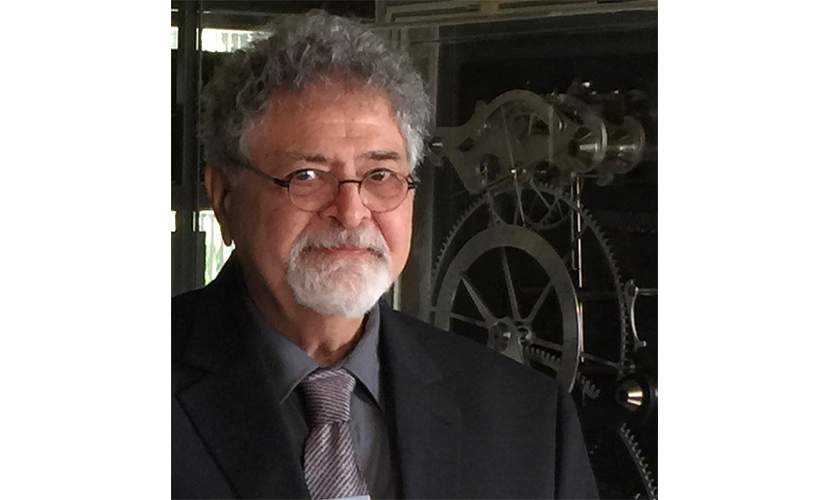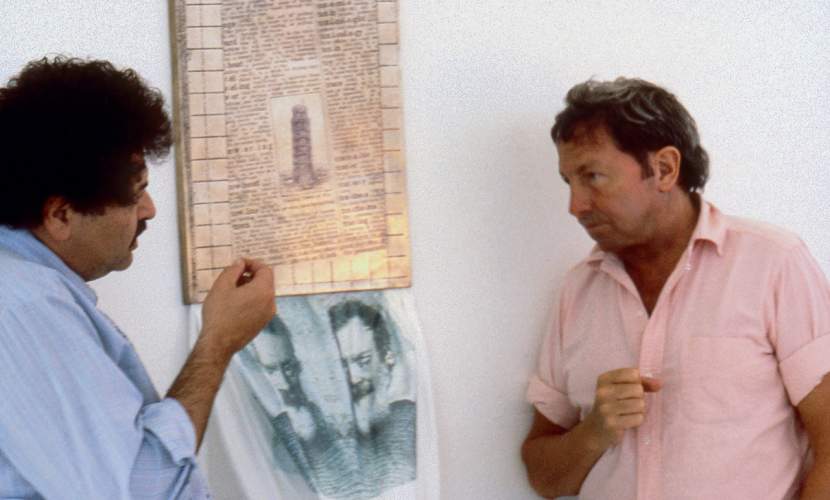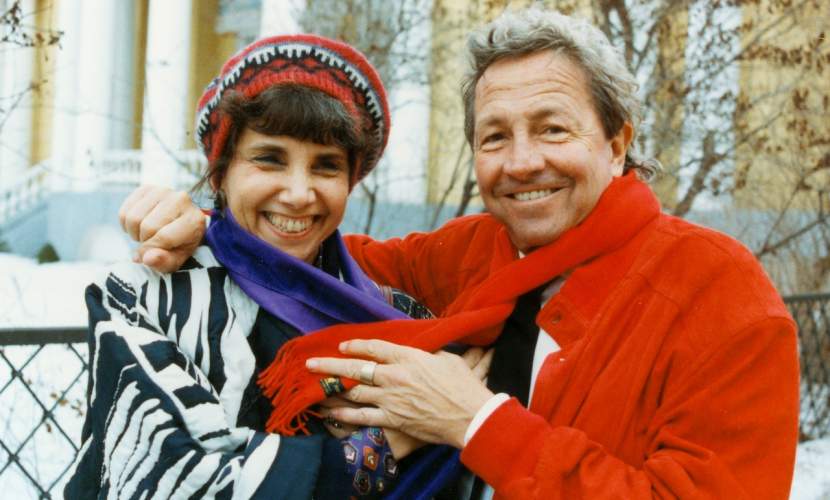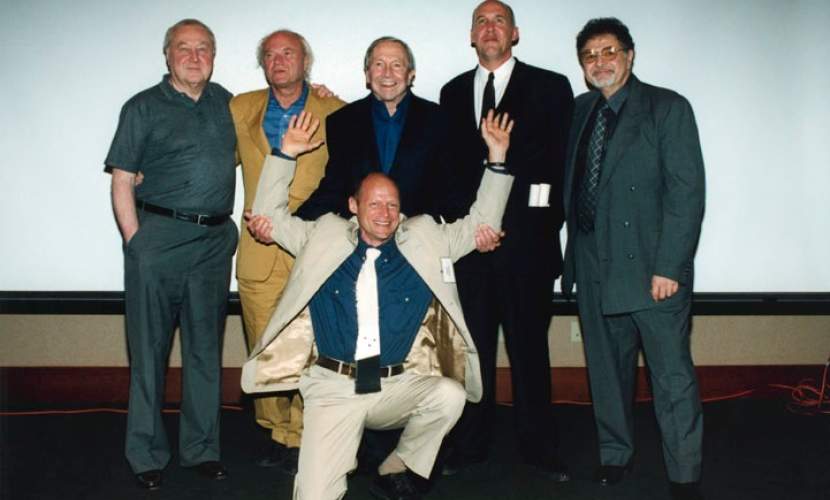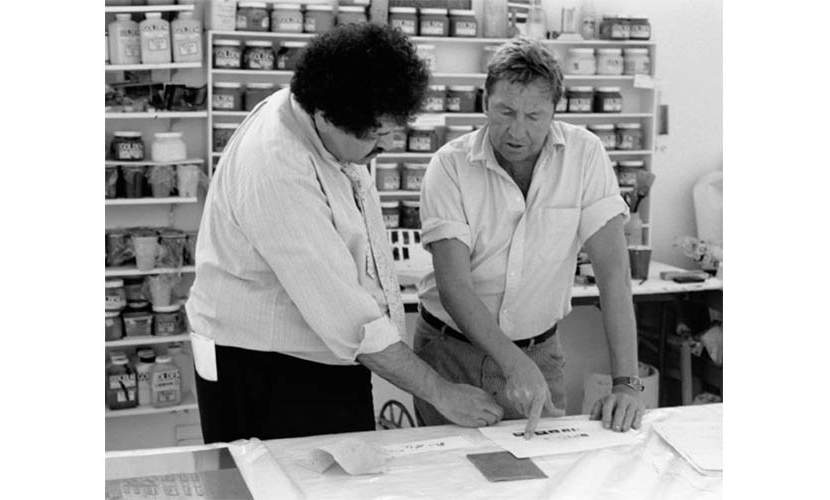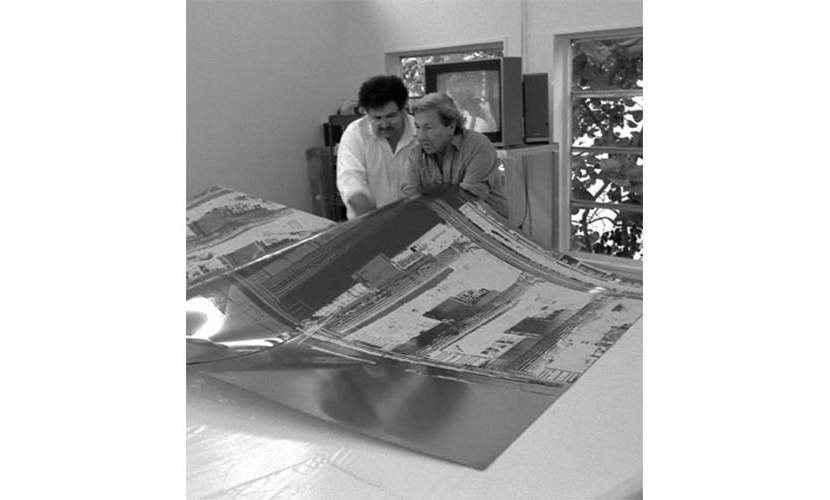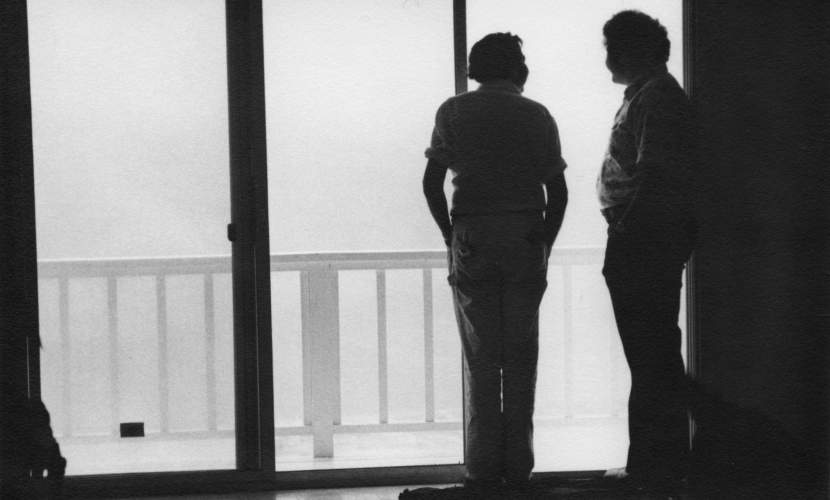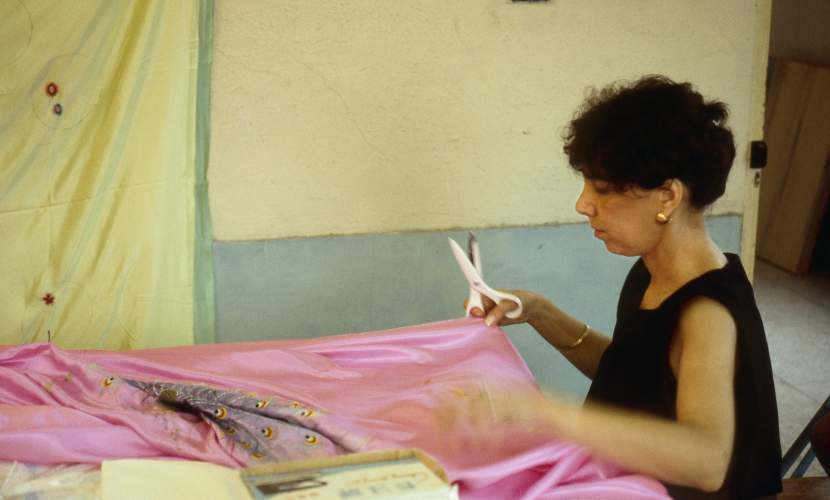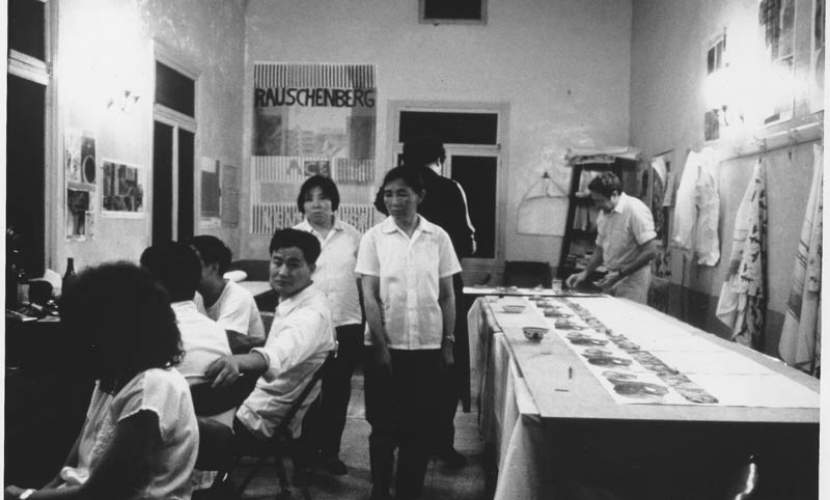Donald Saff
Donald Saff is an artist, art historian, and educator. Among his many honors, he was awarded a Fulbright Fellowship to Italy in 1964. In 1968 Saff founded the printmaking workshop Graphicstudio at the University of South Florida, Tampa, where he served as a Distinguished Professor and Chair of the Visual Arts Department, and as Founding Dean of the College of Fine Arts.
In the early 1970s Saff worked with Rauschenberg at Graphicstudio on numerous experimental print projects, including Made in Tampa (1972–73), Crops (1973), and the Airport Suite (1974). In 1991 Saff established Saff Tech Arts (later Saff and Company) in Oxford, Maryland, where he collaborated with the artist to create such series as Eco-Echo (1992–93), Shales (1994–95), and Arcadian Retreat (1996). Saff served as artistic director for the Rauschenberg Overseas Culture Interchange (ROCI, 1984–91), a project that epitomized Rauschenberg’s belief in the power of art as a catalyst for positive social change. He is the author of several essays on Rauschenberg’s work. Saff’s artistic collaborations with leading late-twentieth-century artists are the subject of a recent book, Donald Saff: Art in Collaboration, by Marilyn S. Kushner (2010).
In addition to their long and fruitful working relationship, Saff and Rauschenberg shared a close friendship that lasted until the artist’s death in 2008.
Excerpt from interview with Donald Saff by James L. McElhinney, 2013
I was in China early on…. Gemini [G.E.L.] wanted to organize a paper project in China…. And the object was to work at the Xuan paper mill, the world’s oldest paper mill, in Jingxian, China. So Bob wanted me to go on the trip because I had co-authored a book on printmaking and I knew about paper making, and he didn’t know what he was going to do. So he would bring me along as the technical person.…
Eventually, we got to Jingxian and they never did let us go to the paper mill. They claimed that the workers were in the paper vats nude and mixing pulp––they would stand in the paper vats nude. And, of course, Bob, given his proclivity, was very anxious to see this and claimed that he would not be offended by any of that. But that didn’t work for them. So we worked in a so-called VIP compound. And at this VIP compound, he was such a sweetie pie on so many levels that people who would not normally work, especially the Chinese at that time––wouldn’t work a minute past the time they had to––started staying there. They didn’t understand the work ethic, actually, of this guy who would get up in the morning and work––just never stop and keep going. So they started staying there. The chef started staying there and eventually started to teach Bob how to make dumplings. Somehow, they all loved him.
Well, in one of the conversations with the cook, through a translator, he was asking about his family and he said that he couldn’t see his family because he needed permission to go twenty miles away and he didn’t know what was happening there and he hadn’t been there for years or decades. Bob started thinking at that point that if these people didn’t know what was going on twenty miles away, they certainly didn’t know what was going on two thousand miles away or ten thousand miles away. There was an issue of communication and need for communication....
This conversation––almost a singular conversation with this cook––somehow gave him the idea that what he needs to do is introduce the world to itself through his art. And the way you would do it is go to a country, take their imagery, make art, show it to them, and then show it to other countries. He would go to countries that had sensitive issues. He certainly wasn’t interested in going to England or France or any of those places. He wanted to go to places that had political or social problems and needed him being there so perhaps the art would make a difference.
So when we got back to Beijing, the idea was crystallized. He had made up his mind that there was going to be this world tour, indeed. But that the world tour would be fashioned in a way that it would do some good and that maybe it would contribute, in some way, to world peace. Now, he wasn’t naive about the notion of world peace. He didn’t think it would happen because he did some sort of project. But he actually thought he could contribute in a significant way and positive way...

